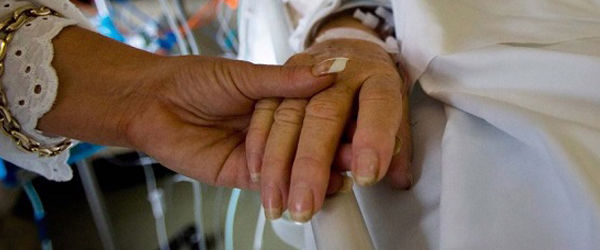There is a Norwegian proverb that reads: “Heroism consists of hanging on one minute longer.” When I was a child in elementary school, one of the stories assigned to us in our textbook for literature had that title. It told the story of a young boy who had fallen through the ice while skating and was left clinging, cold and alone, to the edge of the ice with no help in sight. As he hung on in this seemingly hopeless situation, he was tempted many times to simply let go since no one was going to come along to rescue him. But he held on, despite all odds. Finally, when everything seemed beyond hope, he clung on one minute longer and after that extra minute help arrived. The story was simple and its moral was simple: This young boy lived because he had the courage and strength to hang on one minute longer. Rescue comes just after you have given up on it, so extend your courage and waiting one minute longer. This is a tale of physical heroism and it makes its point clearly: Heroism often consists in staying the course long enough, of hanging on when it seems hopeless, of suffering cold and aloneness while waiting for a new day. Scripture teaches much the same thing about moral heroism. In the Second Letter to the Thessalonians, Paul ends a long, challenging admonition by stating: “You must never grow weary of doing what is right.” And in his letter to the Galatians, Paul virtually repeats the Norwegian proverb: “Let us not become weary of doing good, for at the proper time we will reap a harvest if we do not give up.” This sounds so simple, and yet it cuts to the heart of many of our moral struggles. Simply put, we give up too soon, give in too soon, don't carry tension long enough, and don't carry our solitude to its highest level. We simply don't carry tension long enough.
Men and women are noble of character precisely when they can walk with patience, respect, graciousness and forbearance amid crushing and unfair tensions, when they never grow weary of doing what is right.
All of us experience tension in our lives: tension in our families, tension in our friendships, tension in our places of work, tension in our churches, tension in our communities, and tension within our conversations around other people, politics and current events. And, being good-hearted people, we carry that tension with patience, respect, graciousness and forbearance — for a while! Then, at a certain point we feel ourselves stretched to the limit, grow weary of doing what is right, feel something snap inside of us, and hear some inner-voice say: “Enough! I've put up with this too long! I won't tolerate this anymore!” And we let go, unlike the little boy clinging to the ice and waiting for rescue. We let go of patience, respect, graciousness and forbearance, either by venting and giving back in kind or simply by fleeing the situation with an attitude of good riddance. Either way, we refuse to carry the tension any longer. But that exact point — when we have to choose between giving up or holding on, carrying tension or letting it go — is a crucial moral site, one that determines character. Big-heartedness, nobility of character, deep maturity and spiritual sanctity often manifest themselves around these questions: How much tension can we carry? How great is our patience and forbearance? How much can we put up with? Mature parents put up with a lot of tension in raising their children. Mature teachers put up with a lot of tension in trying to open the minds and hearts of their students. Mature friends absorb a lot of tension in remaining faithful to each other. Mature young women and men put up with a lot of sexual tension while waiting for marriage. Mature Christians put up with a lot of tension in helping to absorb the immaturities and sins of their churches. Men and women are noble of character precisely when they can walk with patience, respect, graciousness and forbearance amid crushing and unfair tensions, when they never grow weary of doing what is right. Of course, this comes with a caveat: Carrying tension does not mean carrying abuse. Those of noble character and sanctity of soul challenge abuse rather than enable it through well-intentioned acquiescence. Sometimes, in the name of virtue and loyalty, we are encouraged to absorb abuse, but that is antithetical to what Jesus did. He loved, challenged and absorbed tension in a way that took away the sins of the world. We know now, thanks to long bitter experience, that, no matter how noble our intention, when we absorb abuse as opposed to challenging it, we don't take away the sin, we enable it. But all of this will not be easy. It's the way of long loneliness, with many temptations to let go and slip away. But, if you persevere and never grow weary of doing what is right, at your funeral, those who knew you will be blessed and grateful that you continued to believe in them — even when for a time they had stopped believing in themselves. Oblate of Mary Immaculate Father Ronald Rolheiser is a specialist in the field of spirituality and systematic theology. His website is www.ronrolheiser.com.
{gallery width=100 height=100}gallery/2012/1026/rolheiser/{/gallery}

